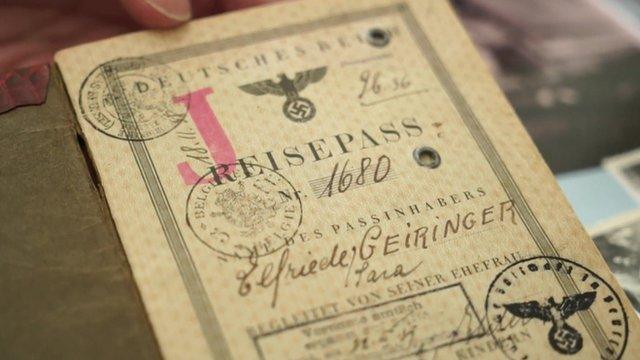Eva Schloss: 'Why I took Austrian citizenship aged 92'
- Published
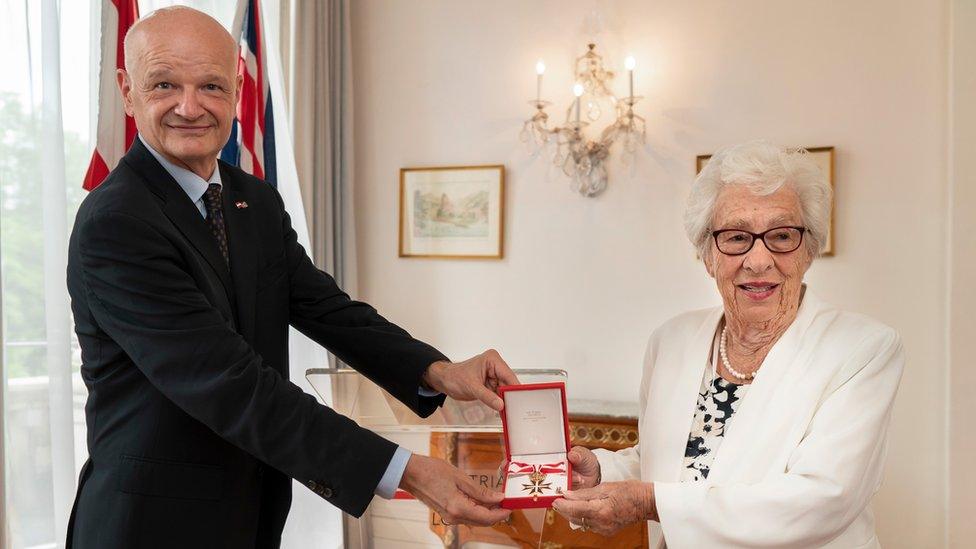
Eva Schloss says she plans to put her newly awarded Medal for Services to the Republic of Austria "next to my English MBE in my display cabinet"
Eva Schloss fled Austria to escape persecution by the Nazis, but at the age of 92 has again become a citizen of the country of her birth.
Mrs Schloss, who has lived in London for 70 years, has dedicated her life to making sure people never forget what happened during the Holocaust - one of its millions of victims was her friend and stepsister, Anne Frank. She explains why she was finally ready to become an Austrian once more.
The day after Nazi Germany annexed Austria, Eva Geiringer's 12-year-old brother Heinz was subjected to an anti-Semitic assault by his former friends.
"Blood was streaming from his face and his clothes were all torn," she remembers.
"When my parents asked him what had happened, he said: 'My old friends did this to me and my teachers watched.'"
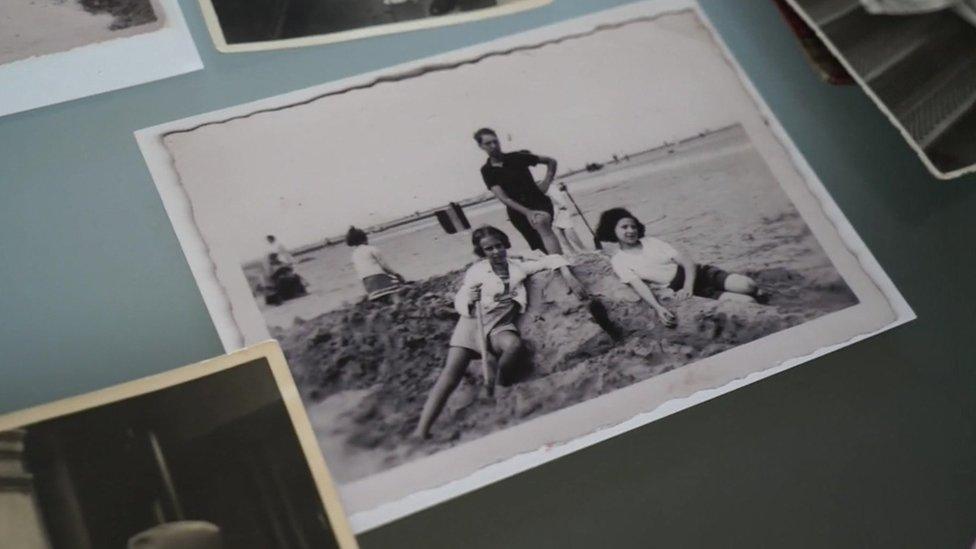
Eva spent "a wonderful nine years in Austria" before fleeing
The impact was felt immediately after Nazi troops marched into Austria, on 12 March 1938, to incorporate the country into Germany - the Anschluss.
Overnight, friends and neighbours in Vienna turned against nine-year-old Eva and her family simply because the Geiringers were Jewish.
"I remember I went to my best friend's house, a Catholic girl, and when I got there her mother slammed the door in my face," she said. "Her mother, she looked with such hatred and said: 'I never want to see you again.'
"I ran home crying. My mother said: 'Things are going to change now for Jewish people.'"
Her family lost their nationality - they were forced to become German - and in the process gained new passports that identified them as Jewish.
The Geiringers were soon smuggled illegally into Belgium; Eva's mother swore never again to set foot in her homeland - although Eva admits she thought it was "quite the adventure" at the time.
They stayed for a while in "unwelcoming" Brussels before moving to Amsterdam. There, Eva became friends with a girl in her apartment block named Anne Frank.
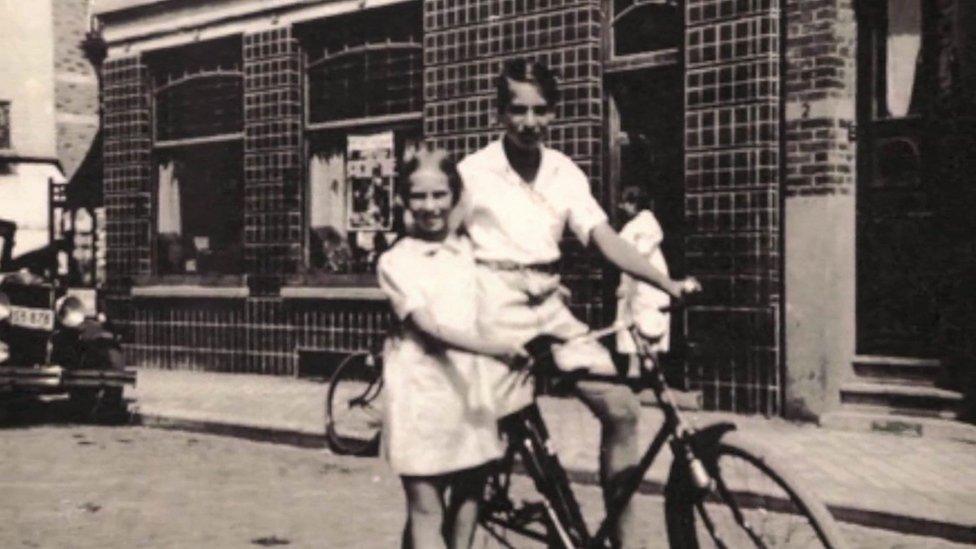
Eva and her brother Heinz pictured during World War Two in Amsterdam, where their family lived
Both girls' families went separately into hiding to avoid the Nazis' round-up of the Jews but in May of 1944, on Eva's 15th birthday, the Geiringers were arrested and sent to Auschwitz-Birkenau. They had been betrayed by a double agent in the Dutch underground.
By the time they were liberated by the Soviet army, in January 1945, Eva and her mother Elfriede were barely alive; her brother and father both died in captivity.
Repatriated to Amsterdam, Elfriede - who was known as Fritzi - married Otto Frank, the father of Anne, who had also managed to survive internment by the Nazis.
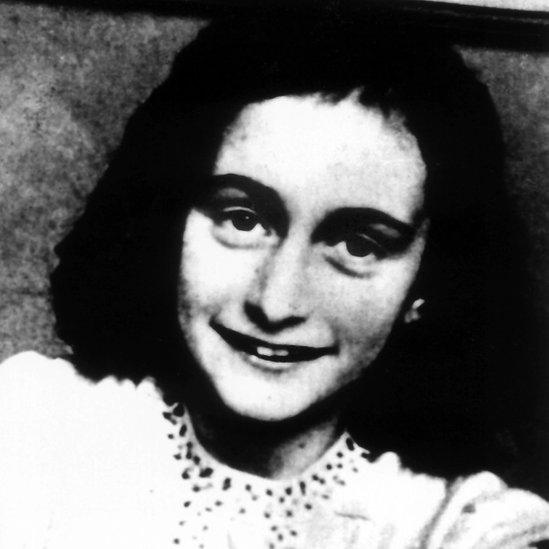
Eva's friend Anne Frank - Anne's father would marry Eva's mother after the war
Over the past 40 years, Mrs Schloss has dedicated her life to trying to prevent history from repeating itself.
As co-founder of the Anne Frank Trust UK, she preserves the diarist's memory and educates people about the Holocaust.
Mrs Schloss often travels in Europe, talking to young people in particular, spreading a message not to hate, not to repeat what has happened in the past.
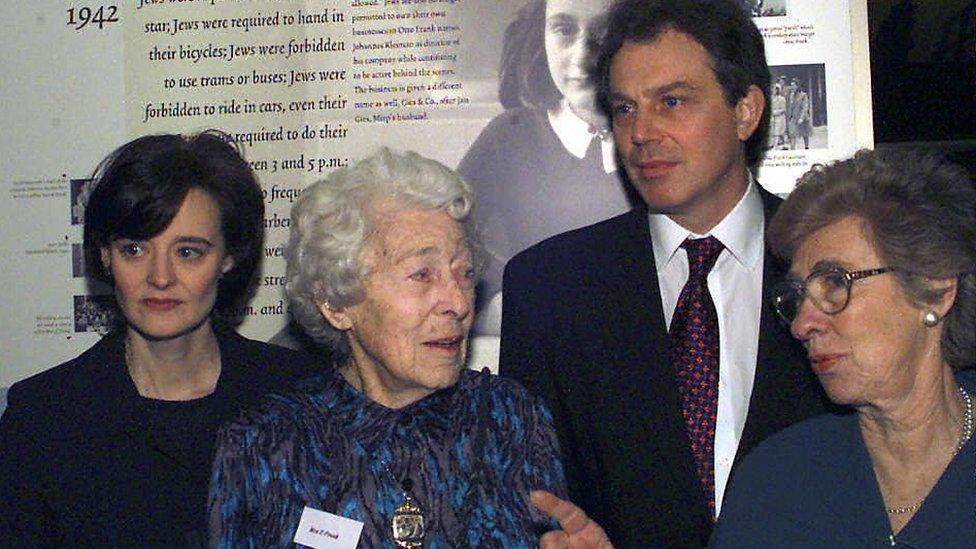
Mrs Schloss and her mother Fritzi Frank regularly met world leaders, among them then-UK prime minister Tony Blair
"I have worked very, very hard to change people's attitudes," said Mrs Schloss.
"Each person you convince not to be racist is a positive."
Through her work, she has spoken to "thousands of young people around the world".
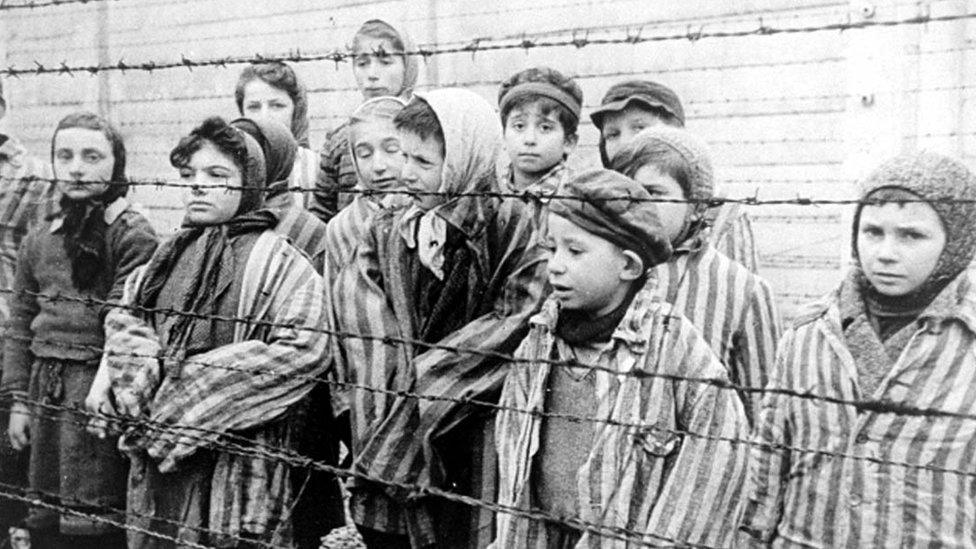
Eva was one of hundreds of thousands of children deported to Auschwitz-Birkenau
In 1951, Eva had moved to London to study photography.
It was there she met her husband, Zvi Schloss, a German Jew who fled to Palestine during the war after his father was imprisoned at Dachau concentration camp.
The couple made London their home, becoming UK citizens.
"I could never live anywhere else any more," Mrs Schloss said.
As part of a project to preserve her life story, Eva Schloss was asked 1,000 questions and her answers were captured by 116 cameras
And so it was in London, at a small ceremony in the ornate Austrian Embassy in the exclusive Belgravia neighbourhood, that Austrian citizenship was conferred on her on Friday 18 June.
She was also awarded the Medaille für Verdienste um die Republik Österreich (Medal for Services to the Republic of Austria). It is similar in status to an MBE in the UK, which Mrs Schloss also has for her work in remembrance of the Holocaust.
"I never thought I would be celebrated in that country," she said of the nation of her birth.
"I feel that perhaps I have achieved something in my life, to contribute a little bit to change people's attitudes."
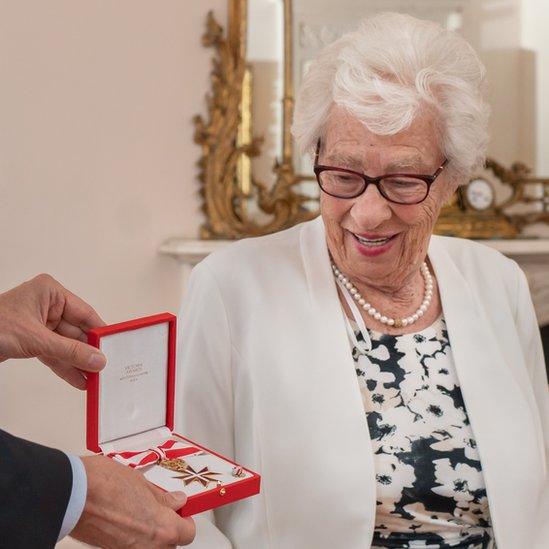
Mrs Schloss has met many thousands of people across the world during her time a Holocaust educator
The decision to take Austrian citizenship - which is open to victims of the Nazi regime, external and their descendants - was not an easy one: her husband Zvi, who died five years ago, had said he would never accept citizenship of his native Germany.
"When I left Austria, I was very bitter. It took me a long time to get over it," Mrs Schloss said.
She admits she feels like a "stranger" in the country of her birth, where she has returned many times, finding that "it feels like a tourist country".
"When I went to Vienna I no longer knew anybody: all my family and friends are gone."
Deciding to become Austrian again - she now has dual citizenship with the UK - was "morally the right thing to do", Mrs Schloss believes.
"The Austrians are sorry about what has happened. We can't carry on the hatred and discrimination any more. The Nazis are not with us.
"The young people need to see we can be friends again."
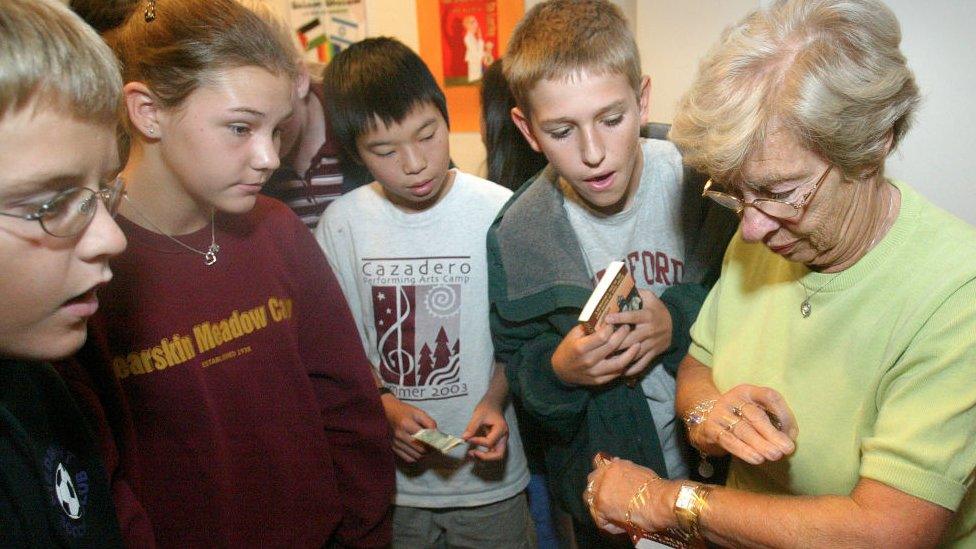
Mrs Schloss shows students her tattooed arm, a legacy of her time as a prisoner of the Nazis
Despite being in her 93rd year, mother-of-three Mrs Schloss has no plans to stop campaigning.
"Obviously, I've not done enough as I'm very worried about the way the world is going now," she said.
She believes her stepsister Anne "would be proud we are trying to make the world a better place but still disappointed we haven't achieved it yet".
"It's not a good world. No-one can say that it is."
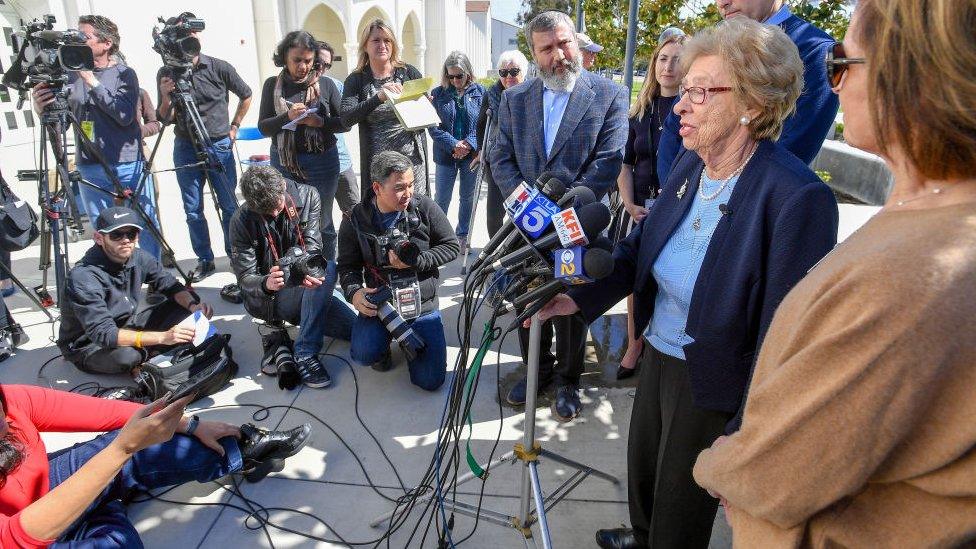
The Holocaust educator says she is worried about the increase in "fake news" in the world
Having overcome so much in her life, Mrs Schloss is not prepared to give in to pessimism, however. She has some simple advice about how we can all make a difference in our own small way.
"Try to make friends with people who are different from you - a different race or religion," she advises. "And realise we are the same - we all want the same things, a good life and good education.
"Equality is very, very important."
- Published24 January 2019
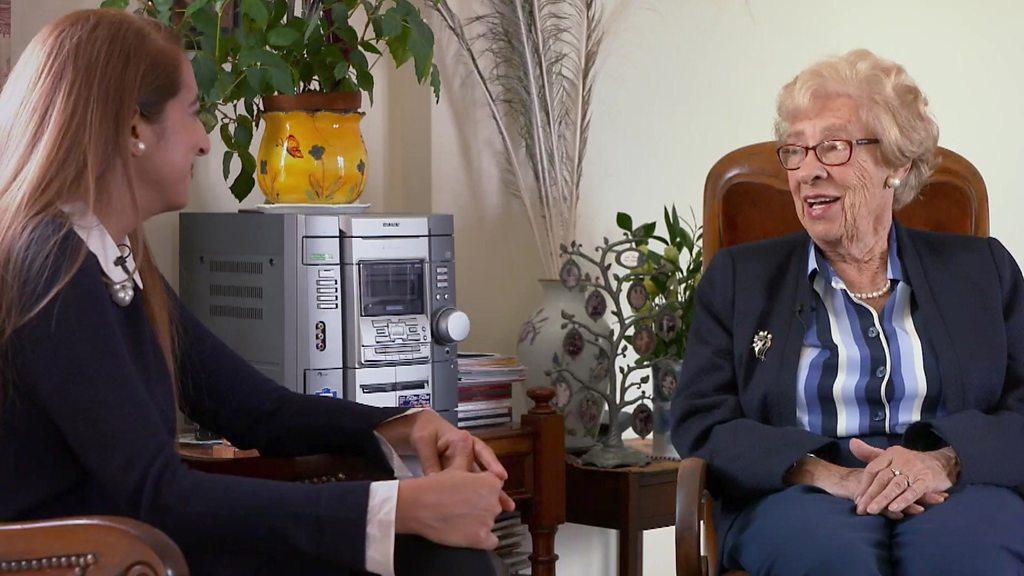
- Published22 December 2017
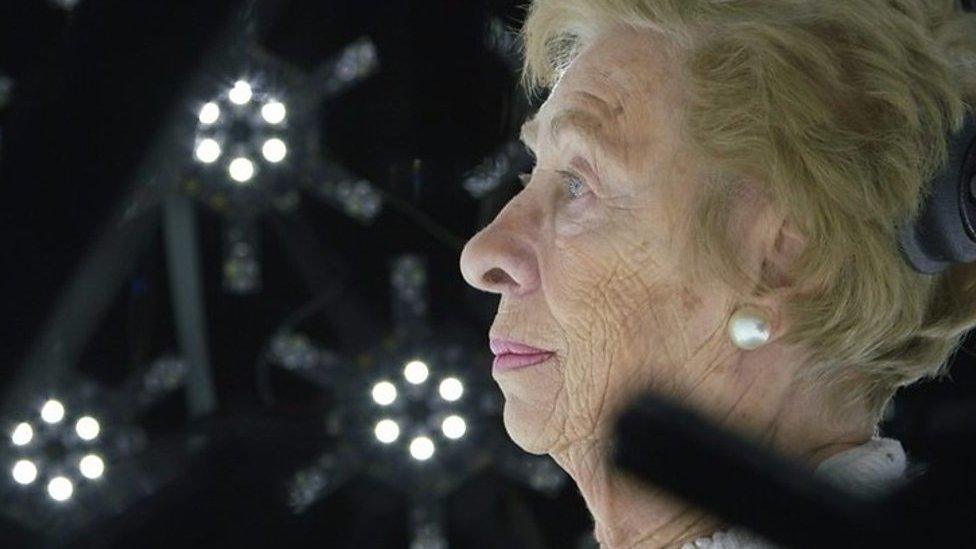
- Published27 January 2015
